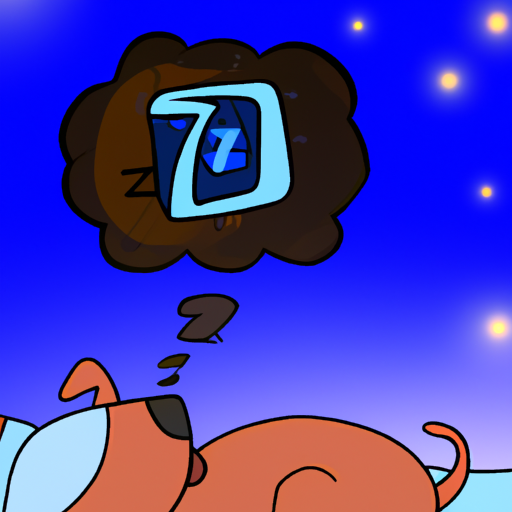As a caregiver for your furry friend, understanding their sleep patterns can greatly enhance the quality of care you provide. Let’s delve into the intriguing world of canine slumber.
Understanding a Dog’s Sleep Cycle
Just as humans have sleep cycles, so do dogs. However, a dog’s sleep cycle is quite different from ours.
- Light Sleep: This is the initial stage of sleep where your dog is easily woken up.
- Deep Sleep: In this stage, your dog’s body repairs and regenerates tissues, builds bone and muscle, and strengthens the immune system.
- REM Sleep: This is when your dog dreams.
Unlike humans who spend 25% of sleep in REM, dogs only spend about 10% due to their irregular sleep patterns.
Factors Influencing a Dog’s Sleep
Several factors can influence how much a dog sleeps, such as:
- Age: Puppies and older dogs tend to sleep more.
- Activity Level: Active dogs tend to sleep less than sedentary dogs.
- Health: Dogs with health issues may sleep more.
Why Dogs Sleep So Much
You might be surprised to find out that on average, dogs sleep for 12 to 14 hours a day. Some breeds even sleep for up to 18 hours! This is perfectly normal and largely due to dogs’ flexible sleep habits. Unlike humans, dogs sleep out of boredom and to pass the time.
How to Improve Your Dog’s Sleep
While dogs don’t suffer from sleep disorders as humans do, they can still experience issues like insomnia due to health problems or anxiety. Here are some tips to help your dog get a good night’s sleep:
- Maintain a consistent sleep schedule
- Provide a comfortable sleeping environment
- Monitor your dog’s diet
- Regular exercise
How Much Sleep is Too Much?
While it’s normal for dogs to sleep a lot, excessive sleep can be a sign of a problem. If you notice any of the following signs, it may be time to consult a vet:
- Your dog sleeps more than usual
- They have trouble waking up
- They seem lethargic during their awake hours
FAQs
Q: Can I adjust my dog’s sleep schedule?
A: Yes, you can help regulate your dog’s sleep schedule by setting consistent feeding, exercise, and bedtimes.
Q: How can I tell if my dog is not getting enough sleep?
A: Signs of sleep deprivation in dogs include increased aggression, hyperactivity, and difficulty focusing.
Q: Can dogs have nightmares?
A: Yes, dogs can have nightmares. If your dog seems disturbed during sleep, it’s best to gently wake them up.
Q: Should I let my dog sleep in my bed?
A: This depends on personal preference and whether or not it disrupts your own sleep.
Remember, understanding your dog’s sleep patterns is a crucial step in providing the best care for your four-legged friend.



